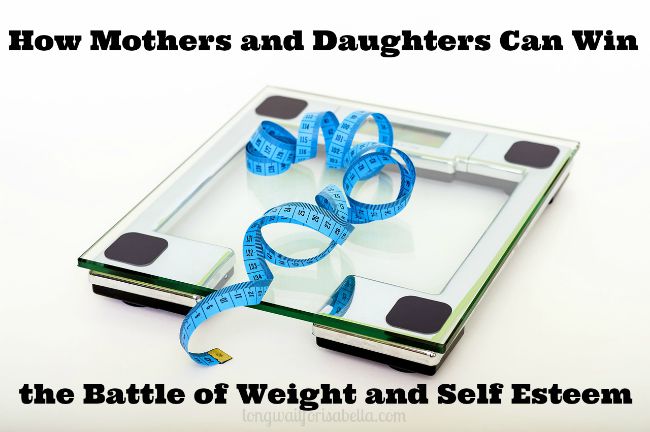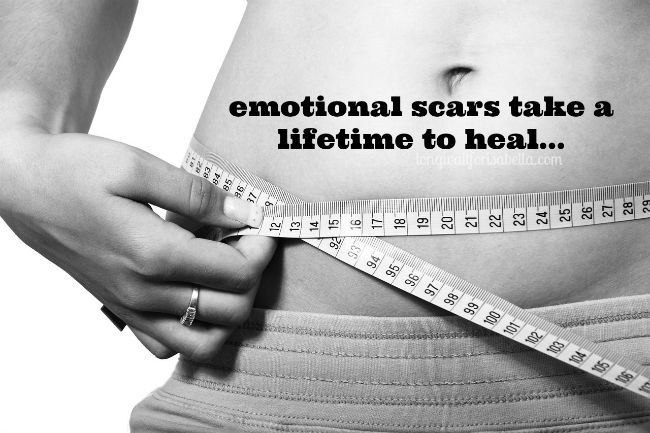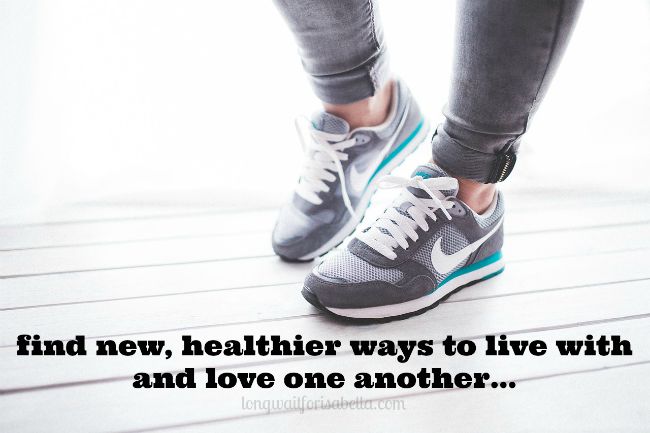When you look in the mirror, what do you see? For most of us, it’s not the accomplished woman you’ve become, but the fat girl you used to be. Sadly, we pass on our childhood struggles with weight and body image to our own daughters keeping them—and us—trapped and unable to engage confidently in school, at work and with loved ones.
Here are seven ways to break that cycle. For good.
- There’s no better role model for your daughter than you. Are you constantly denigrating your body (or others’)? Obsessing about dieting or exercise? Think about what you say and what your daughter may be picking up from all that negative body talk.
- Take a positive approach. Look to build her self-esteem by showing her how to identify photo-shopped or otherwise altered images that distort real women’s bodies. (Hint: a flawlessly smooth contouring line at the waist, hip or thigh is a dead giveaway that there’s been some digital plastic surgery going on.)
Encourage her to develop her own sense of style that brings out her natural beauty and enhances her confidence. Help her find clothes that fit and flatter—whatever her body type and weight. Find a physical activity you both enjoy and can do together.
And please, oh please, bite your tongue before you nag, punish or lash out in fat shaming, no matter how frustrated you may get. It can leave emotional scars that take a lifetime to heal.
- Make meals a celebration not a battle. Family time is precious. Serve healthy foods in healthy portion sizes but don’t make an issue of who’s eating what and how much.
Sure, don’t bring junk food into the house. (Seriously, there is not willpower enough to resist it.) But, more importantly, talk about something other than food or weight. Treat the dinner hour as a time for bonding not emotional battering.
- Create a safe haven. Our culture says, “Be thin.” Our commercial interests say, “Eat this. Drink that.” There are mean girls and interfering institutions that do more harm than good with public weigh-ins and institutional shaming.
Advocate for your daughter by educating her about what is true and real by giving her the emotional wherewithal to deal with bullies outside the home or standards that impose one-size-fits-all metrics on young girls and women. Let her know she can always count on you for protection and support.
- Listen for the subtext. When your daughter comes to you and asks, “Am I fat?” don’t answer right away. Think about the context. Maybe it’s her way to start a conversation about something else that’s bothering her about her body or her life and her weight is an easy conversational hook.
Whatever her motivation, listen and find a way to reassure and prove to her that she can talk to you. That your love is not conditional upon numbers on a scale. Start building that trust today so she can talk to you throughout her life.
- Love means always being able to say you’re sorry. We always want to do right by our kids and when it comes to weight, we don’t want to say the wrong thing. But when you do, don’t be afraid to say “I’m sorry.” Apologize sincerely and work to find a more loving and helpful way to address the problem (e.g. Health, not weight. Confidence, not calories.)
- Outsource the cure. If you and your daughter seem to be stuck in the same unhealthy patterns, don’t hesitate to ask for professional help. Sometimes the very same thing you’ve said over and over again resonates better and is much more palatable when it comes from someone else (i.e. not her mom).
An objective source with the right experience and manner can provide a new perspective and a safe space where you and your daughter can find new, healthier ways to live with and love one another.
Susan Bodiker founded One Girl Wellness to help girls and women overcome the image disorders that eat away at their self-esteem and keep them from engaging confidently in their world. Her new e-book, “Fat Girl: how to let go of your weight and get on with your life,” is now on sale. Visit www.susan-bodiker.com for details.






This is such a great line-up of pointers for girls on how to battle the bulge the right way.
The best role model for your children is yourself– so true! Same goes for boys. I always preach it’s more important to be healthy then try to fit a certain image.